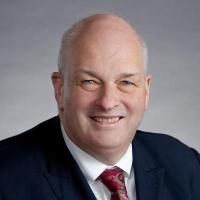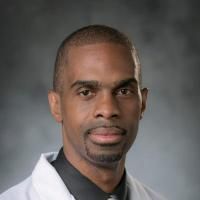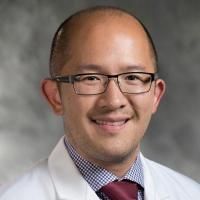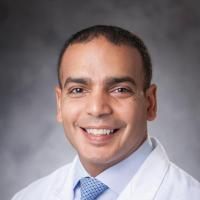Beyond Placement of Pedicle Screws - New Applications for Robotics in Spine Surgery: A Multi-Surgeon, Single-Institution Experience.
Date
2022-01
Journal Title
Journal ISSN
Volume Title
Repository Usage Stats
views
downloads
Citation Stats
Attention Stats
Abstract
Interest in robotic-assisted spine surgery has grown as surgeon comfort and technology has evolved to maximize benefits of time saving and precision. However, the Food and Drug Administration (FDA) has currently only approved robotics to assist in determining the ideal trajectory for pedicle screw placement after extensive research supporting its efficacy and efficiency. To be considered a durable and effective option, robotics need to expand beyond the indication of just placing pedicle screws. This article aims to illustrate a multi-surgeon, single-institution experience with unique applications of robotic technologies in spine surgery. We will explore accessing Kambin's Triangle in percutaneous transforaminal interbody fusion (percLIF), iliac fixation in metastatic cancer, and sacroiliac (SI) fusions. Each of these topics will be covered in depth with associated background information and subsequent discussion. We show that with proper understanding of its limitations, robots can help surgeons perform difficult surgeries in a safe manner.
Type
Department
Description
Provenance
Subjects
Citation
Permalink
Published Version (Please cite this version)
Publication Info
Tabarestani, Troy Q, David Sykes, Kelly R Murphy, Timothy Y Wang, Christopher I Shaffrey, C Rory Goodwin, Phillip Horne, Khoi D Than, et al. (2022). Beyond Placement of Pedicle Screws - New Applications for Robotics in Spine Surgery: A Multi-Surgeon, Single-Institution Experience. Frontiers in surgery, 9. p. 889906. 10.3389/fsurg.2022.889906 Retrieved from https://hdl.handle.net/10161/28011.
This is constructed from limited available data and may be imprecise. To cite this article, please review & use the official citation provided by the journal.
Collections
Scholars@Duke

Christopher Ignatius Shaffrey
I have more than 25 years of experience treating patients of all ages with spinal disorders. I have had an interest in the management of spinal disorders since starting my medical education. I performed residencies in both orthopaedic surgery and neurosurgery to gain a comprehensive understanding of the entire range of spinal disorders. My goal has been to find innovative ways to manage the range of spinal conditions, straightforward to complex. I have a focus on managing patients with complex spinal disorders. My patient evaluation and management philosophy is to provide engaged, compassionate care that focuses on providing the simplest and least aggressive treatment option for a particular condition. In many cases, non-operative treatment options exist to improve a patient’s symptoms. I have been actively engaged in clinical research to find the best ways to manage spinal disorders in order to achieve better results with fewer complications.

Courtney Rory Goodwin
Associate Professor of Neurosurgery, Radiation Oncology, Orthopedic Surgery.
Director of Spine Oncology,
Associate Residency Program Director
Third Year Study Program Director Neurosciences, Duke University School of Medicine
Director of Spine Metastasis, Duke Center for Brain and Spine Metastasis, Department of Neurosurgery
Duke Cancer Institute, Duke University Medical Center

Khoi Duc Than
I chose to pursue neurosurgery as a career because of my fascination with the human nervous system. In medical school, I developed a keen interest in the diseases that afflict the brain and spine and gravitated towards the only field where I could help treat these diseases with my own hands. I focus on disorders of the spine where my first goal is to help patients avoid surgery if at all possible. If surgery is needed, I treat patients using the most advanced minimally invasive techniques available in order to minimize pain, blood loss, and hospital stay, while maximizing recovery, neurologic function, and quality of life. In my free time, I enjoy spending time with my family and friends. I am an avid sports fan and love to eat. I try to stay physically fit by going to the gym and playing ice hockey.

Muhammad Abd-El-Barr
As a Neurosurgeon with fellowship training in Spine Surgery, I have dedicated my professional life to treating patients with spine disorders. These include spinal stenosis, spondylolisthesis, scoliosis, herniated discs and spine tumors. I incorporate minimally-invasive spine (MIS) techniques whenever appropriate to minimize pain and length of stay, yet not compromise on achieving the goals of surgery, which is ultimately to get you back to the quality of life you once enjoyed. I was drawn to medicine and neurosurgery for the unique ability to incorporate the latest in technology and neuroscience to making patients better. I will treat you and your loved ones with the same kind of care I would want my loved ones to be treated with. In addition to my clinical practice, I will be working with Duke Bioengineers and Neurobiologists on important basic and translational questions surrounding spinal cord injuries (SCI), which we hope to bring to clinical relevance.
Unless otherwise indicated, scholarly articles published by Duke faculty members are made available here with a CC-BY-NC (Creative Commons Attribution Non-Commercial) license, as enabled by the Duke Open Access Policy. If you wish to use the materials in ways not already permitted under CC-BY-NC, please consult the copyright owner. Other materials are made available here through the author’s grant of a non-exclusive license to make their work openly accessible.
